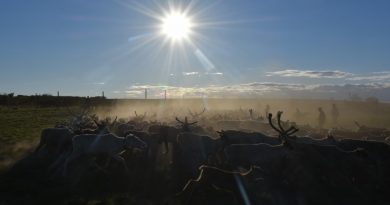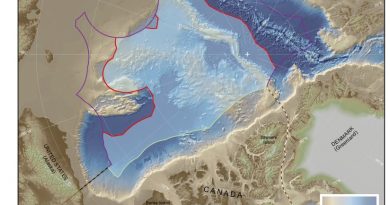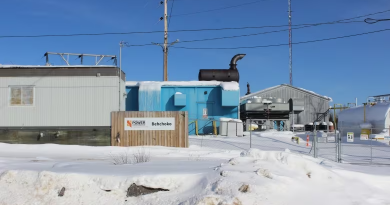‘Sensitive clay’ behind massive northern Quebec landslide
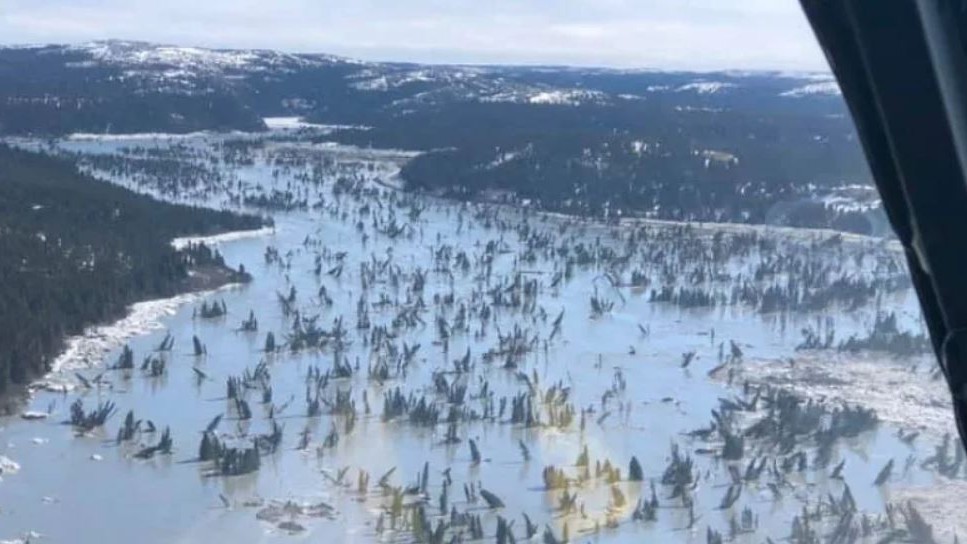
A landslide expert says a massive slide along the Great Whale River in northern Quebec was not caused by the effects of climate change. It was made bigger because of something called “sensitive clay.”
Variations in the climate and melting permafrost are expected to cause more landslides, albeit likely smaller and shallower, according to Denis Demers, the landslide team leader for Transports Québec.
He says that the slide on April 22, which happened about eight kilometres upstream from the Cree and Inuit villages of Whapmagoostui and Kuujjuarapik, was too far south to be caused by melting permafrost, and too deep to be caused by variations in the climate.
“This landslide was so deep that it was not in any way impacted by weather conditions on the surface … for example, if there is more rain or snow that falls more rapidly and is absorbed more rapidly in the soil,” said Demers.
He added that in some areas along the river, the soil gave way from a height of 40 metres, or roughly the height of an 11-storey building.
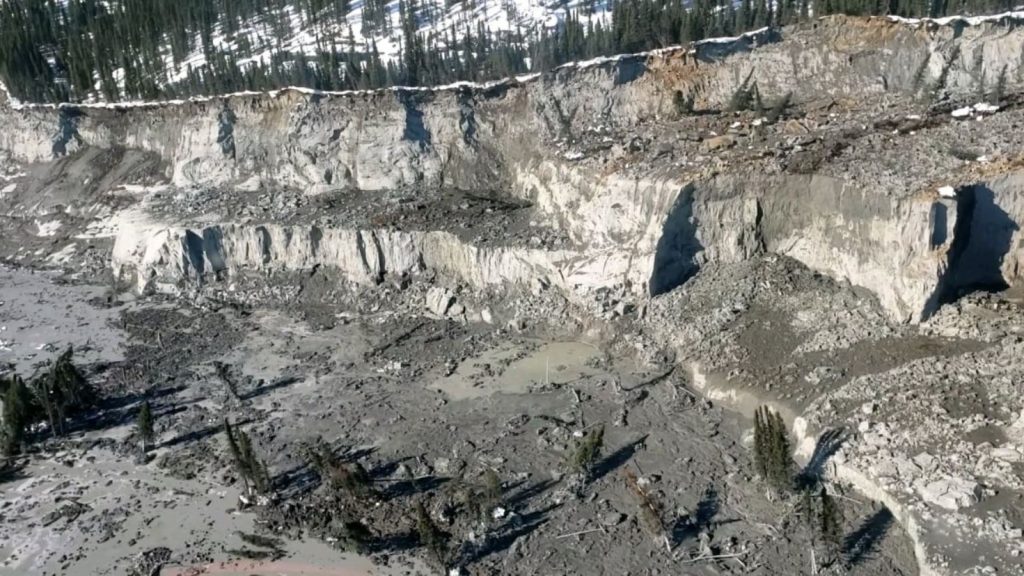
It was the second largest landslide ever recorded in Quebec, in 150 years of keeping records. It also sent more than 45 million cubic metres of debris into the river.
Both Whapmagoostui and Kuujjuarapik are built on sand with only a little bit of clay. The area where the slide happened was one of deep clay soils. The main risk from this landslide was the flow of the river being completely blocked and then giving way, causing sudden flooding and erosion. But the river was never completely blocked, according to Demers.
“Along the edge of James Bay and Hudson Bay … there can be clay soils … but that doesn’t mean it’s everywhere,” he said, adding the farther inland one goes, the less chance of finding clay.
And, even if clay soil is present, it needs to be a particular type of clay, known as “sensitive clay,” to cause a slide like the one along the Great Whale River. Sensitive clay liquifies when shaken a lot, or when falling from a height of 40 metres down to the river — like in the case of the recent landslide.
Demers says that is why this slide was so huge.
“The best example I could give you is apples,” said Demers. “An apple is solid. You can even put apples on the floor and put weight on them and the apples will resist the weight. But if you put your apples in a mixer or a blender you will find you will get a puree. It’s kind of like that with sensitive clay.”
Once the spring melt has ended, landslide experts from Demers’s team, along with hydraulic experts, will visit the site to carry out tests.
“Because it is a major event,” said Demers, “this will disrupt the course of the river for several months [or] several years. [The hydraulics experts] will try to predict what we should expect.”
Demers said the teams will arrive in Whapmagoostui and Kuujjuarapik after the spring run-off, in early to mid-June.
Related stories from around the North:
Canada: Landslides on island in Arctic Canada up 6,000% since 1984, study finds, CBC News
Greenland: Greenland ice cores reveal historic climate clues, says study, Eye on the Arctic
Norway: New climate report predicts extreme warming for Arctic Svalbard by 2100, The Independent Barents Observer
Russia: The island that disappeared in Arctic Russia, The Independent Barents Observer
United States: Climate change a threat to bases across the U.S., Defense Dept. says, Alaska Public Media

